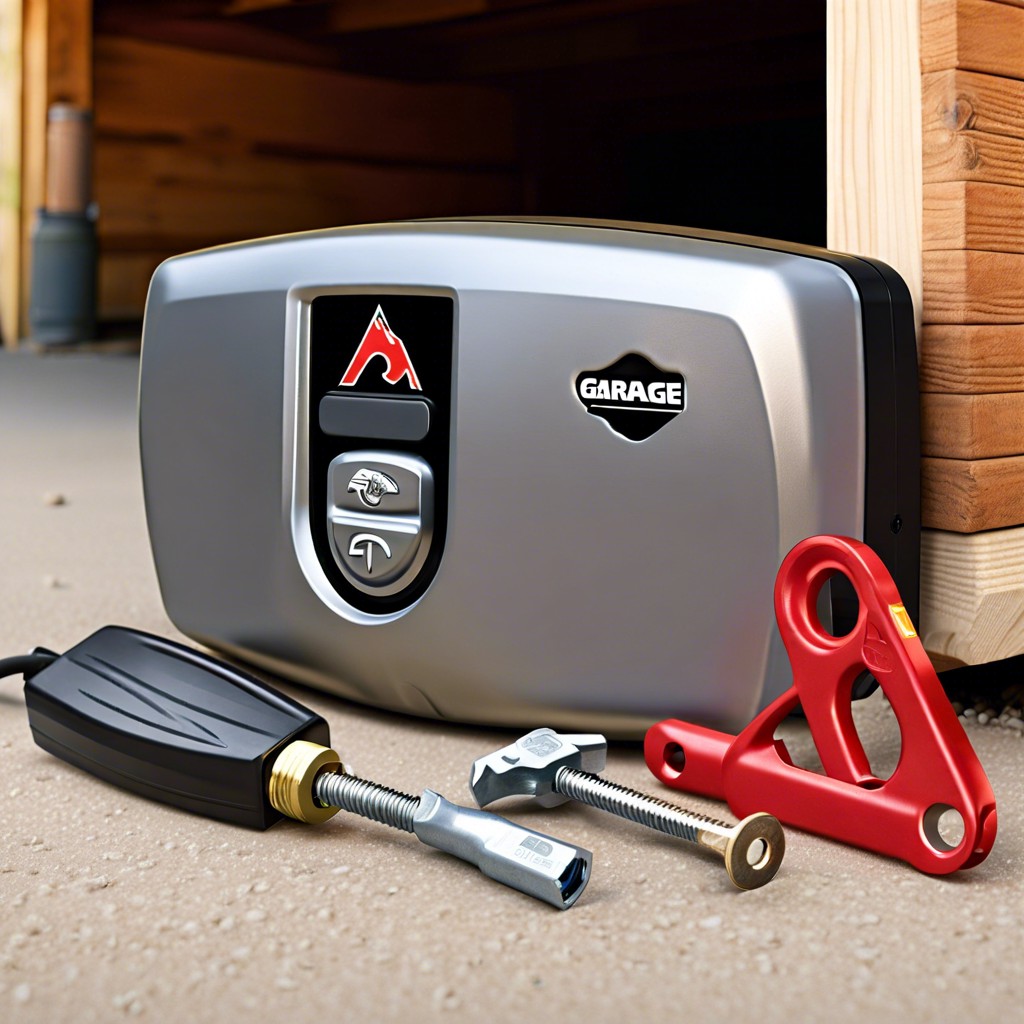Learn how to choose the right horsepower for your garage door opener to ensure smooth operation and durability.
Key takeaways:
- Choose horsepower based on door size and weight.
- Frequent use requires higher horsepower for durability.
- Consider climate impact on horsepower needs.
- Different motor types suit various needs and preferences.
- Look for safety features like sensors and rolling codes.
What Horsepower Do I Need: Factors to Consider

First off, consider the size and weight of your garage door. A single-car garage door might only need a 1/2 horsepower motor, while heavier double doors or those made of solid wood can require a 3/4 horsepower motor to function smoothly. Ever tried lifting a solid wood door alone? Exactly.
The frequency of use is another biggie. If your garage sees more traffic than a freeway at rush hour, opt for a higher horsepower motor. Motors with more oomph will last longer under constant use. And let’s face it, no one needs their door taking a coffee break halfway up.
Climate plays a part too. Live in an area where winters turn your garage into a popsicle? You’ll need more horsepower to ensure the opener can handle the additional weight of snow and ice. Because, unlike your car battery, your door opener shouldn’t hibernate in the cold.
Lastly, consider future-proofing. Planning on upgrading to a bulkier door down the line? Avoid the double-dipping on opener purchases by getting one with a bit more horsepower now.
Remember, an underpowered motor is like hiring a sloth to do a cheetah’s job—slow, ineffective, and just plain frustrating.
Different Motors On the Market and Their Horsepower
You’ll find three main types of motors for garage door openers: AC motors, DC motors, and screw drive motors. Each comes with its own horsepower range, tailored for different needs.
AC motors are the classic choice, typically ranging from 1/3 HP to 1 HP. They’re powerful and reliable, making them ideal for heavier wooden doors. Think of them as the workhorse—strong but a bit noisy.
Then there are DC motors, the smooth operators. They usually come in horsepower equivalent ratings, such as ½ HP or ¾ HP. These motors offer quieter operation and softer starts and stops, perfect for attached garages where noise might turn family movie night into a horror show.
Lastly, screw drive motors often range from ½ HP to ¾ HP. They’re strong, durable, and require minimal maintenance. If you live in a place with temperature extremes, this motor laughs in the face of harsh weather conditions.
So, whether you need the muscular AC for heavy lifting, the silent finesse of DC, or the robust screw drive, there’s a horsepower fit for every door.
Types of Garage Door Openers
Belt drive openers use a rubber belt to move the trolley. They are quieter than a librarian in a deserted library, making them perfect for attached garages. Though slightly pricier, your ears will thank you.
Chain drive openers are the workhorses of the garage door opener world. They’re reliable and robust, using a metal chain to lift even the heaviest doors. But, they can be as noisy as a brass band at dawn, so consider carefully if your bedroom is nearby.
Screw drive openers use a threaded steel rod and are masters of minimal maintenance. They have fewer moving parts, so fewer things can go wrong. But beware, in extreme temperatures, they might throw a tantrum.
Direct drive openers are the zen masters. With the motor itself gliding along the track, they’re exceptionally quiet and boast a long lifespan. Perfect for those who value tranquility and longevity.
Lastly, jackshaft openers mount on the wall beside the door, freeing up ceiling space for that hanging kayak. They’re ultra-quiet and packed with high-tech features, but be prepared to shell out a few extra bucks.
Garage Door Opener Features
Bells and whistles, folks—garage door openers have them too. Modern openers come packed with features that make life simpler, like smart home integration. Imagine opening your garage door from your phone while you’re still in your pajamas. Bliss.
Then there’s the battery backup. No power? No problem. If you ever find yourself in the dark, this feature ensures your door still opens like it’s no big deal.
Don’t forget about quiet operation. Some openers are louder than a rock concert, but others whisper as they work. Ideal for attached garages or if you’re just a fan of living in peace.
Lastly, consider the lights. Some models come with built-in motion detectors, lighting up your garage like a Christmas tree when you walk in. No more fumbling for the switch.
Safety and Security
Safety and security should never be the afterthought—they should be the life of the garage door opener party.
First, be the brightest bulb in the box and look for openers with rolling code technology. This means the code changes every time the garage door is used, keeping potential intruders guessing.
Sensors are your best friends here. If anything crosses the path of a closing door, these little lifesavers will reverse the door faster than you can say, “Watch out!”
Manual release cords can turn into your superhero in an emergency. They allow you to disengage the door from the opener, letting you open or close it manually—very useful during power outages or if the opener decides to go on strike.
Battery backups are like the spare tire for your car but for your garage—they ensure that even during a blackout, you can still get in and out.
Auto-close features can be a game-changer for the forgetful folks among us. Set it, and forget it.
Last on the safety parade: consider a garage door opener with a lock mode. This functionality disables the remote, adding an extra layer of security when you’re away or tucked in bed.